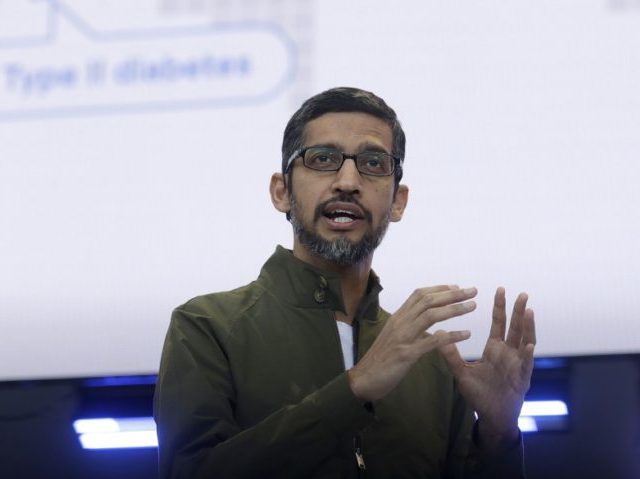Google will reportedly not be bidding on the JEDI contract, a massive Department of Defense cloud computing contract worth $10 billion, with the company citing its “A.I. Principles” for its refusal to bid.
According to TechCrunch, Google chose not to bid on the contract because the project “may not align with the company’s principles for how artificial intelligence should be used.” Google provided a statement to TechCrunch which reads:
We are not bidding on the JEDI contract because first, we couldn’t be assured that it would align with our AI Principles. And second, we determined that there were portions of the contract that were out of scope with our current government certifications.
The company did, however, add that they are still “working to support the U.S. government with our cloud in many ways.” Bidding on the Joint Enterprise Defense Infrastructure (JEDI) began approximately two months ago, currently, the lead contender to receive the contract is Amazon who previously worked for the CIA setting up their cloud but a number of other companies are involved in the bidding including Microsoft, Oracle, and IBM.
The contract could last up to ten years and the winner of the bid is expected to be announced at the end of the year. Only one provider will be chosen for the contract, a decision that the Department of Defense defended to Congress stating that the speed of handling task orders in a multiple-award contract operated by more than one firm “could prevent DOD from rapidly delivering new capabilities and improved effectiveness to the warfighter that enterprise-level cloud computing can enable.”
Google told Bloomberg: “had the JEDI contract been open to multiple vendors, we would have submitted a compelling solution for portions of it. Google Cloud believes that a multi-cloud approach is in the best interest of government agencies, because it allows them to choose the right cloud for the right workload.”
Google sent TechCrunch a full statement following the publishing of the article stating:
While we are working to support the US government with our cloud in many areas, we are not bidding on the JEDI contract because first, we couldn’t be assured that it would align with our AI Principles and second, we determined that there were portions of the contract that were out of scope with our current government certifications. Had the JEDI contract been open to multiple vendors, we would have submitted a compelling solution for portions of it.
Google Cloud believes that a multi-cloud approach is in the best interest of government agencies, because it allows them to choose the right cloud for the right workload. At a time when new technology is constantly becoming available, customers should have the ability to take advantage of that innovation. We will continue to pursue strategic work to help state, local and federal customers modernize their infrastructure and meet their mission critical requirements.
Google employees have previously had issue with the company’s interaction with government agencies. In May it was reported that Google employees argued for months over the company’s decision to help the U.S. Department of Defense analyze video footage gathered by military drones. Thousands of Google employees signed a petition stating that they oppose the company’s new project, approximately a dozen employees even quit over the issue. The employees that chose to quit the company reportedly left memos to colleagues explaining their decisions, which ranged from ethical issues relating to Google helping the U.S. Military to issues with Google slowly losing public trust.
Many groups have been critical of Google’s involvement in the project, such as the Electronic Frontier Foundation, which published an article urging Google to drop the project. Another petition from the Tech Workers Coalition reads: “We believe that tech companies should not be in the business of war, and that we as tech workers must adopt binding ethical standards for the use of AI that will let us build the world we believe in.”
Lucas Nolan is a reporter for Breitbart News covering issues of free speech and online censorship. Follow him on Twitter @LucasNolan_ or email him at lnolan@breitbart.com

COMMENTS
Please let us know if you're having issues with commenting.